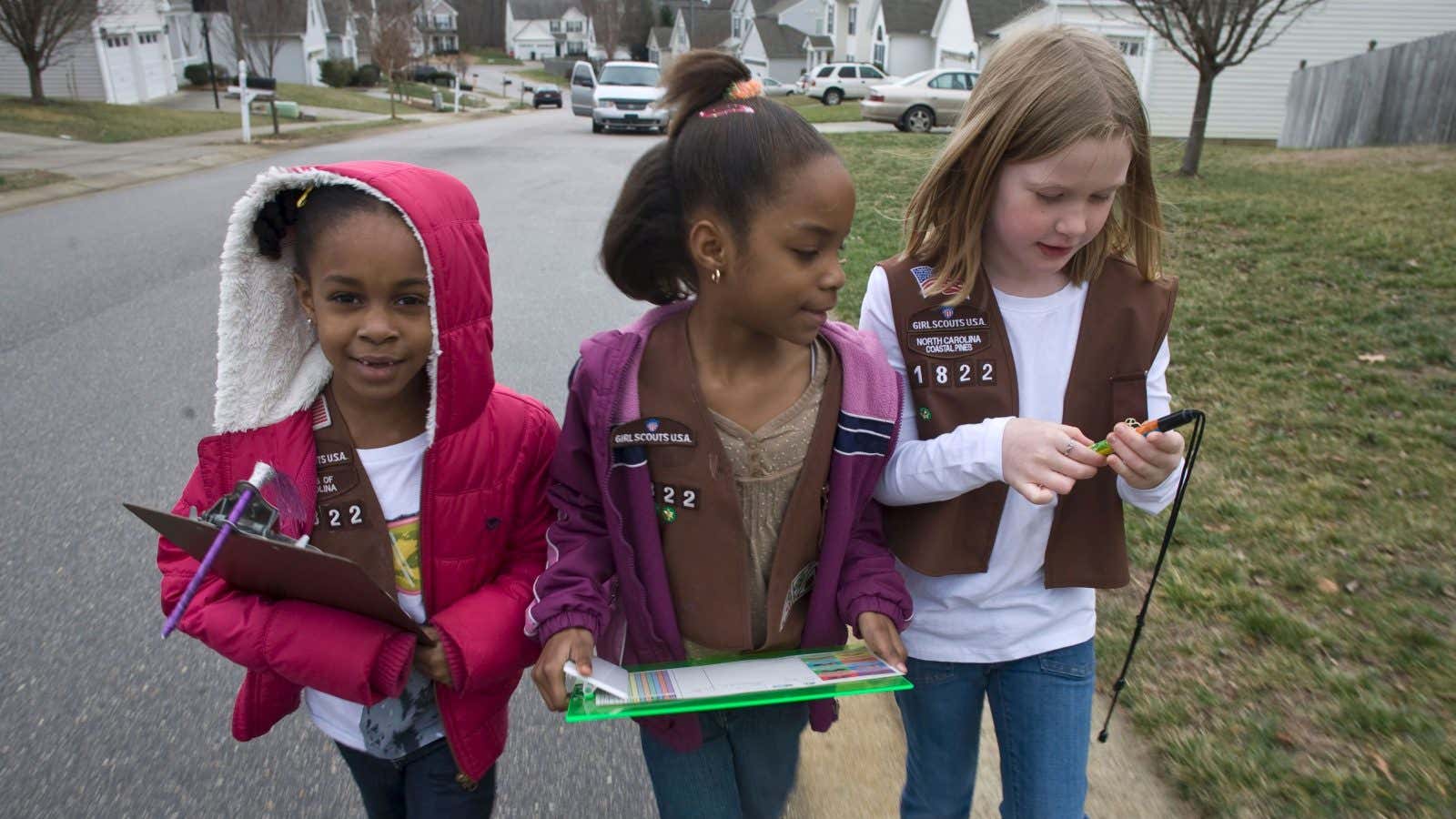More often than not, we talk about sexism as an “adult issue.” But like all cultural ills, sexism and misogyny start young. We raise girls to be perfect—aka, passive—while we teach boys to brave. When girls are defiant, we say they’re bossy. When boys do the same, they’ve got “leadership potential.”
A 12-year-old Girl Scout from Russell Township, a small town in Ohio, is reversing that narrative. Her name is Julianne Speyer, and she’s a boss.
At a Fourth of July parade in Chesterland, Ohio, this year, Speyer noticed that an announcer used sexist language. Disparaged, Speyer took action, writing a letter to the editor of her local paper, the Geauga County Maple Leaf. It’s fantastic:
“The announcer labeled the Boy Scouts the ‘future leaders of America,'” wrote Speyer, “and he said the Girl Scouts were ‘just having fun.'” She found this comment “very patronizing,” and asked the editor to “help [her] let other people know how much this kind of thing happens and how bad it is,” noting that the announcer’s language is an “insult to girls and women of all ages,” which is “not OK at all.”
Major props to Speyer’s parents and adult role models, who she says taught her “that if you think something is unjust, change it” (a sentiment that echoes Hillary Clinton’s presidential concession speech, delivered to little girls across the nation, in which she said, “Please, never stop believing that fighting for what’s right is worth it.”)
But most importantly, congratulations to Julianne Speyer. Putting pen to paper and expressing dissatisfaction so eloquently, and publicly, at such a young age, defines bravery.
If you, like me, did not know what “patronizing” meant at age 12, or did not have the sociocultural awareness to notice the nuanced linguistic distinctions between the way adults describe Boy Scouts and Girl Scouts, you’re not alone. While we can’t assume that Speyer’s progressive fluency represents tectonic shifts among her entire generation, in an era when headlines are dominated by alleged sexual predators, people like Speyer provide a much-needed ray of hope that the next generation of feminist activists are arming themselves with the knowledge, vocabulary, and ambition to dismantle the mess they’ve inherited.
